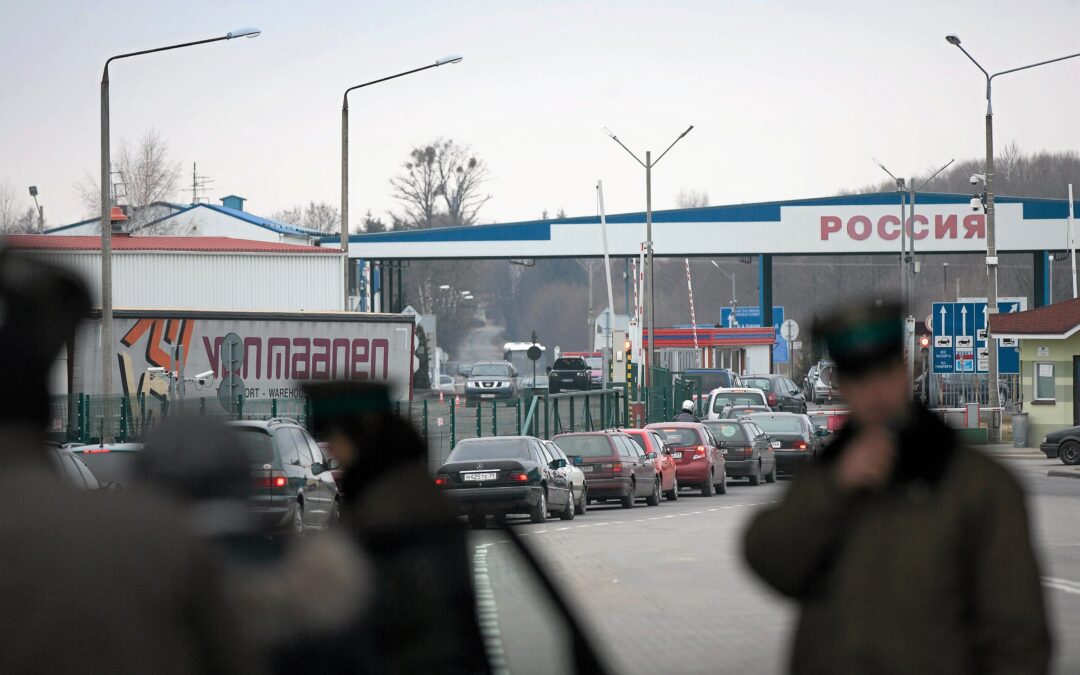Poland, Lithuania, Latvia and Estonia have from today closed their borders to the entry of Russians with visas to enter the Schengen European travel zone. Exceptions will be made for some categories, such as opponents of Vladimir Putin’s regime.
The four countries are – along with Finland – the only ones in the EU to share land borders with Russia, meaning that, with flights from Russia banned from EU airspace, entry to the bloc will now become much harder for Russians. The quartet will also themselves suspend the issuing of visas to Russian citizens.
“Since the vast majority of Russians support Vladimir Putin’s actions in Ukraine, I think that decisions of this kind, restricting the possibility of travel for Russian citizens with Schengen visas, are absolutely justified,” Polish deputy foreign minister Marcin Przydacz told the Polish Press Agency (PAP) today.
Almost one million Russian citizens have crossed the EU border legally since the start of Russia's aggression against Ukraine, according to Frontex data. Most of them have come through Finland 🇫🇮 (around 33%), Estonia 🇪🇪 and Lithuania 🇱🇹 (both around 27-28%). pic.twitter.com/BpCMKWCxBK
— Justinas Kulys (@JustinasKulys) August 29, 2022
The decision by Poland and the three Baltic states was announced earlier this month. It is “unacceptable that, while people in Ukraine are being tortured and murdered, citizens of the aggressor state can travel freely within the EU”, they wrote. “Travel to the EU is a privilege, not a human right.”
They position represents a tougher line than that of the EU as a whole, which has only made gaining visas more difficult for Russians rather than banning them completely.
When EU foreign ministers agreed to suspend a 2007 visa facilitation deal with Russia, the EU’s foreign policy chief Josep Borrell announced at the time that countries bordering Russia could also “take measures at a national level to restrict entry into the EU”.
Przydacz told PAP today that the justification for banning Russians from entering is now even stronger “after what has circulated around the world in recent days – photographs of the exhumations in Izyum, which confirm that, once again, war crimes are most likely to have been committed”.
Poland and the Baltic States have jointly announced the introduction of measures to restrict entry for Russian citizens that will go into effect by 19 September.
"It is unacceptable that citizens of the aggressor-state are able to freely travel in the EU" https://t.co/1tB1HM8An8
— Notes from Poland 🇵🇱 (@notesfrompoland) September 8, 2022
Poland and the Baltic states’ ban will apply to Russian citizens travelling for tourism, culture, sports and business. However, exceptions will be made for various categories, including “dissidents”, “humanitarian cases”, family members and holders of residence permits in EU countries.
According to the EU’s border agency Frontex, between Russia’s invasion of Ukraine on 24 February and 22 August, just under one million Russian citizens entered the EU through land border crossing points.
Two thirds of them entered via the Baltic states and Poland while the other third arrived through Finland. The agency noted, however, that some of the Russian citizens carried residence permits or dual citizenship.
Finland decided last month to cut the number of Russian tourist visa applications it handles to just 10% of the usual 1,000 received per day. A flat-out ban based on an applicant’s nationality is impossible under Finnish law.
Main image credit: Przemyslaw Skrzydlo / Agencja Wyborcza.pl

Alicja Ptak is deputy editor-in-chief of Notes from Poland and a multimedia journalist. She has written for Clean Energy Wire and The Times, and she hosts her own podcast, The Warsaw Wire, on Poland’s economy and energy sector. She previously worked for Reuters.




















